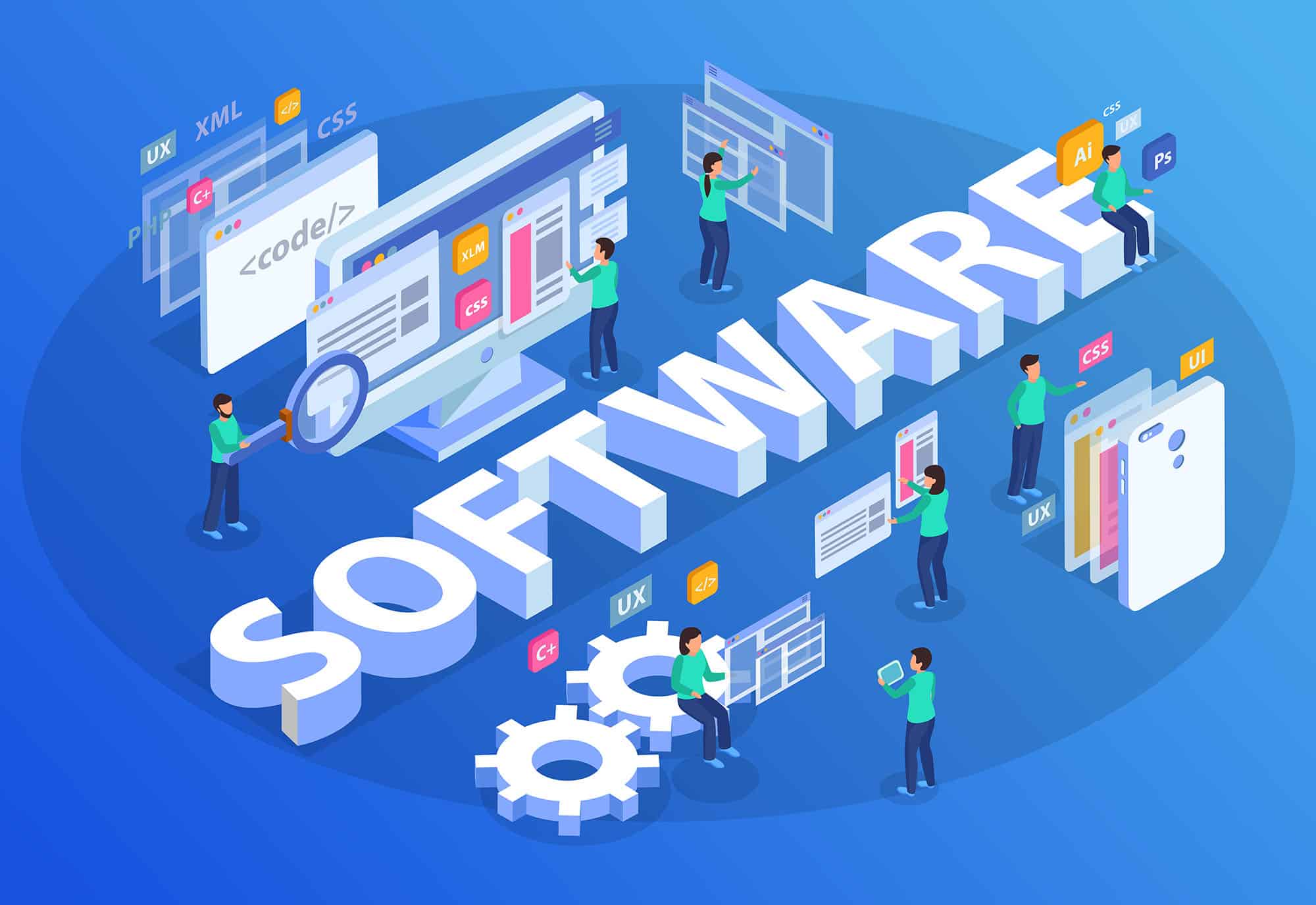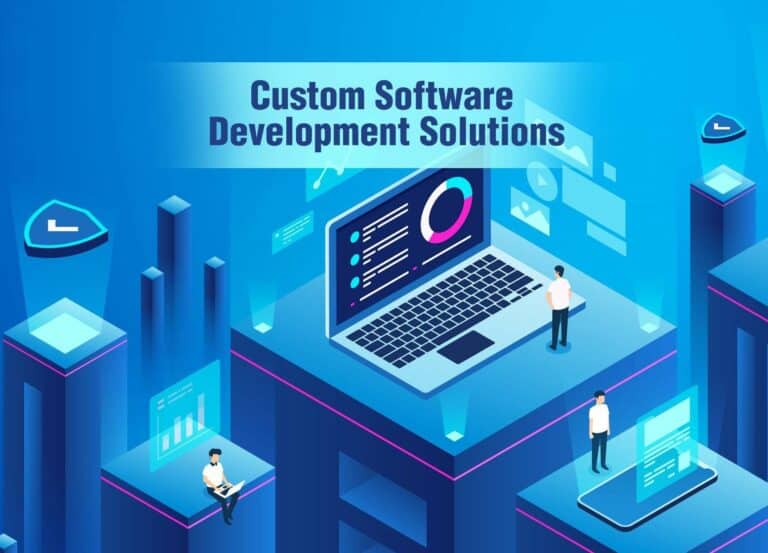Custom Software vs Off-the-Shelf Business Software: Why Going Custom Gives Your Business the Competitive Edge
In the fast-moving business landscape, finding the right software solution is crucial for success. The age-old debate between custom software and off-the-shelf business software rages on. Although off-the-shelf solutions may seem like the path of least resistance, custom software holds the key to giving your business a competitive advantage. In this article, we’ll delve into the differences between custom and off-the-shelf software, and why custom software should be your first choice for staying ahead in the game. So, sit back, grab your favorite beverage, and let’s dive into the world of software solutions!
Custom Software – A Perfect Fit for Your Business Needs
Definition and Benefits
Custom software, also known as bespoke software, is designed specifically to meet your business’s unique needs. Tailored to your requirements, custom software offers increased efficiency, flexibility, and scalability. Here are some key benefits of custom software:
- Personalization: Custom software is built from the ground up, taking into consideration your company’s processes and requirements. It’s like a tailor-made suit, designed to fit your business perfectly, unlike off-the-shelf solutions that may require you to adjust your processes to fit the software.
- Scalability: Custom software can grow and evolve alongside your business, with the ability to scale up or down as needed. In contrast, off-the-shelf software often has limitations, making scaling a challenge.
- Competitive Advantage: Custom software can give you a unique competitive edge by streamlining your processes and incorporating features specific to your industry or niche.
- Integration: Custom software can integrate seamlessly with your existing systems and software, reducing the need for additional investments or third-party integrations.
Custom Software in Action
To demonstrate the power of custom software, let’s look at two examples:
- A healthcare provider needed a comprehensive patient management system to streamline workflows and enhance patient care. By developing custom software, they integrated all aspects of their operation, from appointment scheduling to billing and medical records management.
- An e-commerce company required a warehouse management system to optimize order processing and inventory management. Custom software enabled them to build a solution that integrated seamlessly with their e-commerce platform, providing real-time inventory updates and increasing efficiency while reducing order fulfillment times.
Off-the-Shelf Business Software – The One-Size-Fits-All Dilemma
Definition and Limitations
Off-the-shelf business software, also known as commercial off-the-shelf (COTS) software, refers to pre-built solutions designed for a wide range of businesses. While these solutions offer some advantages, such as lower upfront costs and quicker implementation, they often come with significant limitations:
- Rigidity: Off-the-shelf software is designed to accommodate a broad range of business needs, which means it often lacks the flexibility to adapt to your specific requirements.
- Scalability: As your business grows, you may find that off-the-shelf solutions are unable to keep up with your evolving needs, forcing you to invest in additional software or even switch to a new system altogether.
- Integration Challenges: Off-the-shelf software may not always play well with your existing systems or software, leading to additional costs and potential compatibility issues.
- Hidden Costs: Although off-the-shelf software may seem more affordable upfront, hidden costs such as customization, training, and support can quickly add up, potentially making it a more expensive option in the long run.
Common Off-the-Shelf Software Pitfalls
To further illustrate the drawbacks of off-the-shelf software, let’s examine two common pitfalls
- A manufacturing company adopted an off-the-shelf enterprise resource planning (ERP) system to manage their operations. However, the rigid nature of the software meant that they had to modify their processes to fit the software, rather than the other way around. This led to decreased efficiency, frustrated employees, and wasted resources.
- A growing tech startup invested in a popular customer relationship management (CRM) software. As they expanded, they found that the off-the-shelf solution couldn’t scale to accommodate their increasing customer base and unique sales processes. They had to switch to a new system, incurring substantial costs and downtime.
Making the Case for Custom Software – Facts and Figures
ROI on Custom Software
Investing in custom software may have higher upfront costs, but it often results in a greater return on investment (ROI) over time. A study by the National Institute of Standards and Technology (NIST) found that businesses implementing custom software solutions could save up to 60% on total lifecycle costs compared to off-the-shelf software. These savings stem from factors such as reduced training, lower maintenance costs, and increased efficiency.
Success Stories
Numerous businesses have reaped the rewards of custom software solutions:
- Netflix, a global leader in streaming services, utilizes custom software to power its recommendation engine, which accounts for over 80% of the content watched by users. This personalized approach has contributed to Netflix’s continued success and growth.
- Amazon, the e-commerce giant, has built a vast array of custom software solutions to support its operations, from warehouse management to delivery logistics. These tailor-made systems have given Amazon a competitive edge, enabling them to scale rapidly and maintain a dominant position in the market.
Choosing the Right Software Solution for Your Business
4.1 Assessing Your Needs
When deciding between custom software and off-the-shelf solutions, it’s essential to consider your business’s specific needs. Start by asking the following questions:
- What are my business’s unique processes and requirements? b. How easily can off-the-shelf software be customized or integrated with my existing systems? c. What is my budget, and how does this compare to the long-term costs of both custom and off-the-shelf software? d. How important is scalability to my business’s future growth?
4.2 Partnering with a Custom Software Development Company
If you decide that custom software is the right choice for your business, it’s crucial to find a reliable and experienced software development company. Look for a partner that understands your industry, can provide references or case studies, and has a proven track record of delivering high-quality solutions on time and within budget.
Conclusion
In the battle of custom software vs off-the-shelf business software, custom solutions emerge as the clear winner for businesses seeking a competitive edge. While off-the-shelf software may seem like a quick and easy solution, it often falls short in terms of flexibility, scalability, and long-term ROI. By investing in custom software, you can tailor your solution to your unique needs, giving your business the winning edge, it needs to thrive in today’s competitive landscape. So, why settle for a one-size-fits-all solution when you can have a tailor-made masterpiece? Go custom and let your business soar to new heights!
In summary, custom software offers numerous advantages, including personalization, scalability, competitive advantage, and seamless integration. Off-the-shelf software, while seemingly more affordable upfront, may come with hidden costs and limitations that can hinder your business’s growth and success. With market trends and success stories pointing towards the benefits of custom software, it’s clear that a tailor-made solution is the key to unlocking your business’s full potential.
As you embark on your journey towards adopting custom software, remember to assess your needs thoroughly, and partner with a reputable software development company like Practical Computer Applications that understands your industry and shares your vision. The investment in custom software may have a higher initial cost, but the long-term returns in efficiency, growth, and competitiveness make it a smart choice for businesses looking to stand out in today’s ever-evolving landscape.
So, take the plunge, and give your business the custom software advantage it deserves. After all, your business is unique – shouldn’t your software be too?








